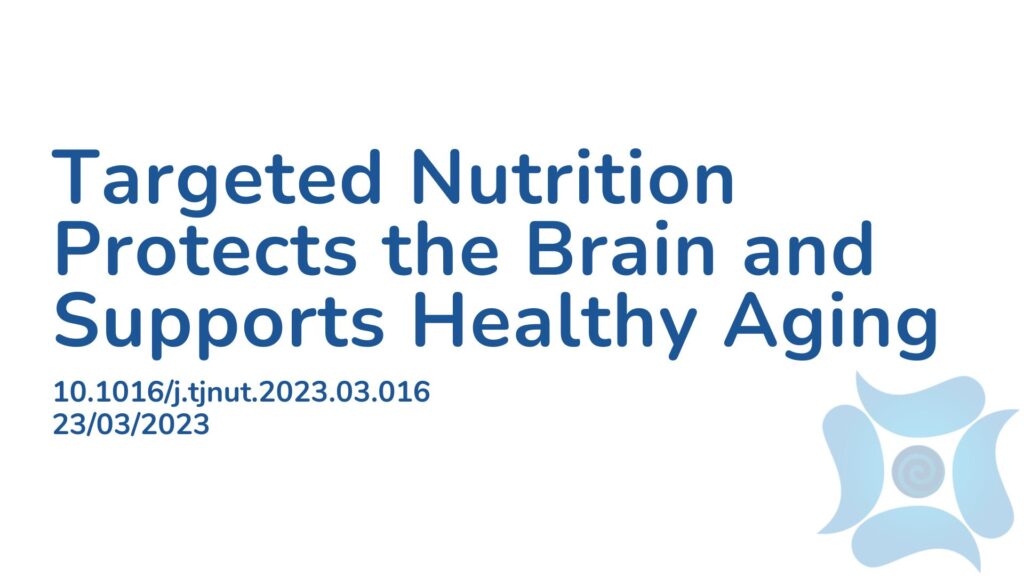Summary:
Multiple research papers have demonstrated that brain health and cognitive performance can be supported with both general dietary management as well as specific nutritional therapy. This paper aimed to explore this further, applying specific biomarkers of aging such as memory and brain volume with the actions of specific nutrients. Brain health was measured before, during and after the course of the study. This paper also looked at how understanding these biomarkers in relation to nutrition and cognition could help individuals make better lifestyle choices. The researchers concluded that nutrition plays a positive role in brain health, and that by incorporating the use of nutrient biomarker analysis and brain imaging, science is able to better understand the positive role that nutrition plays in cognition and healthy aging.
Abstract:
Background: Research in the emerging field of nutritional cognitive neuroscience demonstrates that many aspects of nutrition—from entire diets to specific nutrients—affect cognitive performance and brain health. Objectives: Although previous research has primarily examined the bivariate relationship between nutrition and cognition or nutrition and brain health, this study sought to investigate the joint relationship between these essential and interactive elements of human health. Methods: We applied a state-of-the-art data fusion method, coupled matrix tensor factorization, to characterize the joint association between measures of nutrition (52 nutrient biomarkers), cognition (Wechsler Abbreviated Test of Intelligence and Wechsler Memory Scale), and brain health (high-resolution MRI measures of structural brain volume) within a cross-sectional sample of 111 healthy older adults, with an average age of 69.1 y, 62% being female, and an average body mass index of 26.0 kg/m2. Results: Data fusion uncovered latent factors that capture the joint association between specific nutrient profiles, cognitive measures, and cortical volumes, demonstrating the respects in which these health domains are coupled. A hierarchical cluster analysis further revealed systematic differences between a subset of variables contributing to the underlying latent factors, providing evidence for multivariate phenotypes that represent high and low levels of performance across multiple health domains. The primary features that distinguish between each phenotype were as follows: 1) nutrient biomarkers for monounsaturated and polyunsaturated fatty acids; 2) cognitive measures of immediate, auditory, and delayed memory; and 3) brain volumes within frontal, temporal, and parietal cortexes. Conclusions: By incorporating innovations in nutritional epidemiology (nutrient biomarker analysis), cognitive neuroscience (high-resolution structural brain imaging), and statistics (data fusion), this study provides an interdisciplinary synthesis of methods that elucidate how nutrition, cognition, and brain health are integrated through lifestyle choices that affect healthy aging.
Article Publication Date: 23/03/2023
DOI: 10.1016/j.tjnut.2023.03.016



